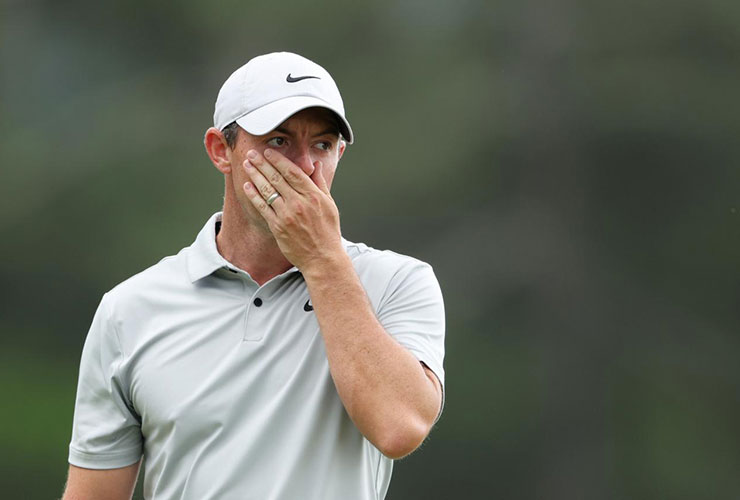Masters fatigue isn’t a documented medical condition, but it’s one many tour pros who have spent weeks prepping to play in the year’s first men’s major say they suffer from after competing in the whirlwind of Augusta National. Perhaps that is the case for Rory McIlroy, who the PGA Tour announced on Monday had withdrawn from this week’s RBC Heritage at Harbour Town Golf Links in Hilton Head Island, South Carolina.
No specific reason for McIlroy’s decision is listed, so it’s unclear why he has decided to pass on the event. However, it’s not a stretch to connect it to his disappointing performance last week at Augusta National. McIlroy was among the pre-tournament favourites heading into the week, having finished second at the Arnold Palmer Invitational and third at the WGC-Dell Match Play. But the 32-year-old followed up an opening 72 with a second-round 77 to miss the cut for just the third time in 15 starts.
Whether his Masters performance precipitated the withdraw or it is related to something else, McIlroy’s decision to skip playing this week would hardly be notable in most years. McIlroy has actually played in the tournament just twice in his career. But this year’s RBC Heritage is one of the tour’s new designated events for 2023, with a $20 million prize money payout on the line. And since McIlroy has already missed one designated event on the schedule — he skipped playing in the Sentry Tournament of Champions to start the year — a second absence could potentially have other ramifications.
When PGA Tour commissioner Jay Monahan outlined last August at the Tour Championship the plan for designated events in 2023, he noted that players who earned bonus money in the tour’s Player Impact Programme in 2022 would be required to play in all designated events in 2023 for which they have qualified in order to receive full payment.
The tour later changed the criteria to allow players to skip one designated event and still be eligible for full payment. But now that McIlroy will be missing a second event, it would appear likely he will receive less than the full $12 million he earned for finishing second in the PIP in 2022. Per PGA Tour guidelines, PIP payments are given to players in installments, with 75 per cent distributed after the Sentry Tournament of Champions in January and 25 per cent given upon completion of the designated event requirement in 2023.
Interestingly, when the tour outlined how designated events will work in 2024, officials dropped the requirement for players to play in them all to remain eligible for the PIP.









